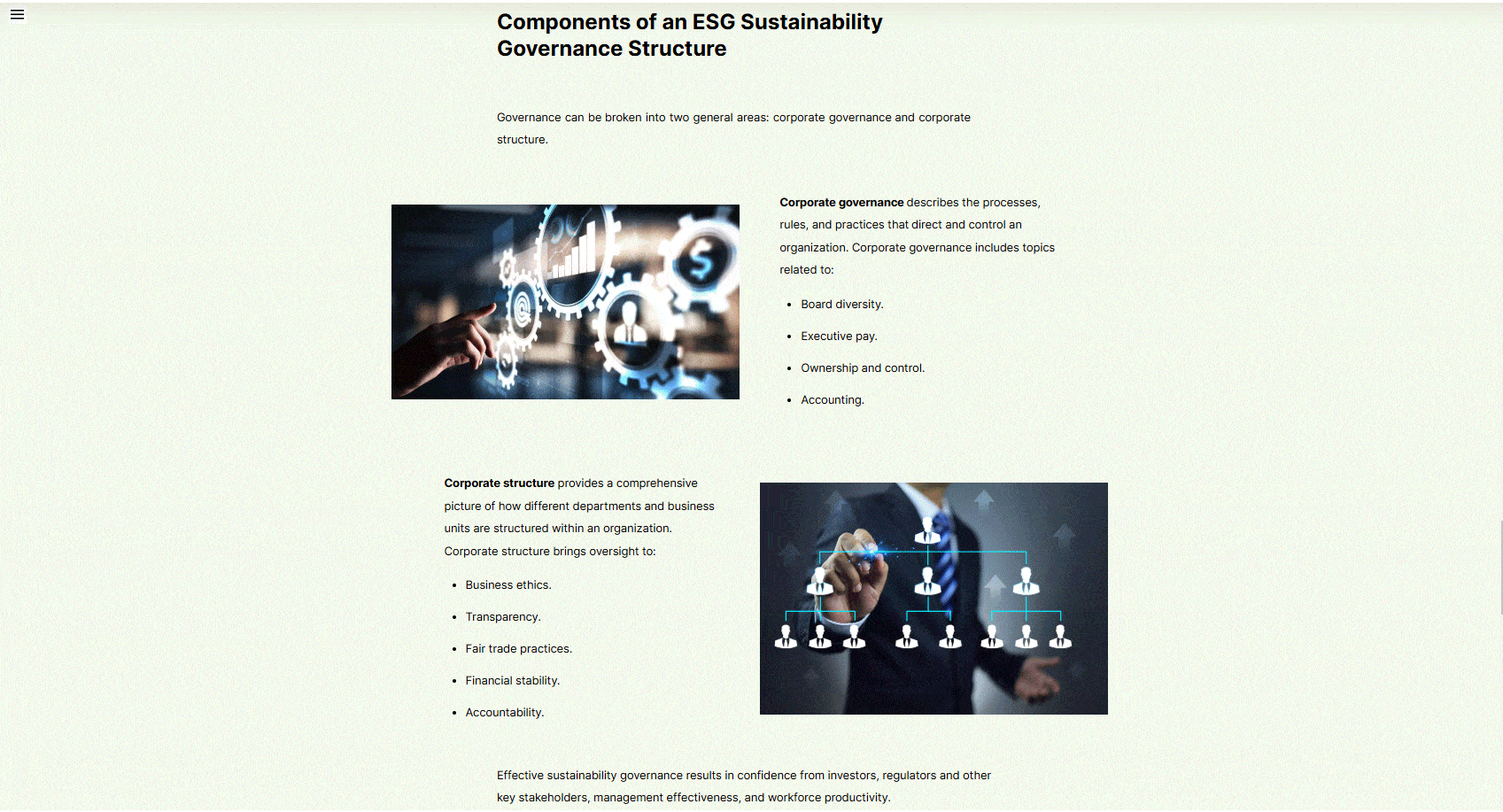Format: On-demand
About Self-Study Certificate Program
As ESG reporting becomes increasingly common world-wide, it should be treated with the same care as financial reporting. Organizations need to recognize that ESG reporting must be built on a strategically crafted system of internal controls and accurately reflect how an organization’s ESG efforts relate to each other, the organization’s finances, and value creation. This certificate program delves into essential and foundational aspects of ESG, while providing a hands-on practical application of critical ESG metric identification and reporting.
As you participate in this series of courses, you will work in the role of a new ESG internal audit employee for a fictitious international QR Code company. Your new employer, Scannee Tech, considers their ESG initiatives a high priority for the organization.
Working with Scannee is an important milestone in your career. However, before you can officially begin your employment, you will need to complete new hire onboarding with the Human Resources department.

This certificate program is comprised of 9 modular courses:
- Fundamentals of ESG.
- ESG Governance and Frameworks.
- ESG Strategy.
- Sustainability Leadership.
- ESG Reporting and Standards.
- Process for ESG Reporting.
- Methodology of ESG Reporting.
- ESG Risk Management.
- Establishing an Audit Program for ESG.
Participants who complete all course modules are eligible to sit for the certificate exam which is administered on The IIA’s LMS platform.
Learning Objective(s):
- Establish a common understanding of ESG.
- Review the current global regulations governing ESG, including ESG reporting.
- Explore the future of ESG regulations, world-wide.
- Identify the components of a typical ESG Governance Framework and factors critical for establishing ESG governance.
- Examine key considerations for building an ESG audit strategy.
- Discuss practices for establishing sustainability leadership within the organization, including critical ESG roles.
- Practice ESG reporting and metrics, including necessary data requirements.
- Understand the impact of third-party actions on the organization’s ESG reporting requirements.
- Explore how internal audit can add organizational value as ESG regulations expand.